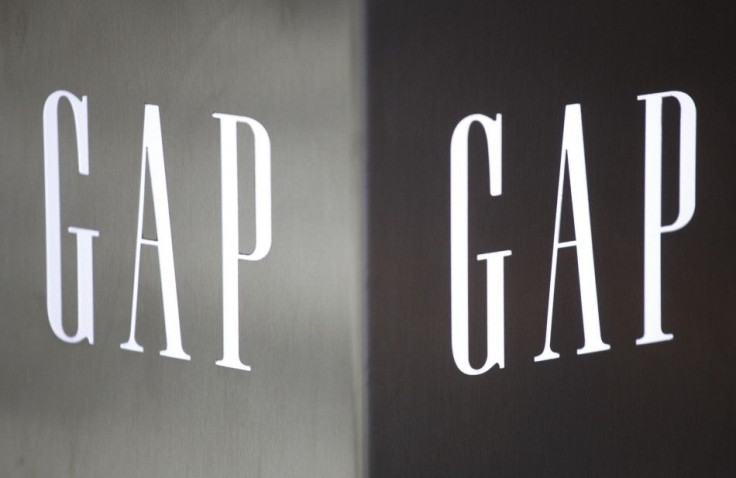Retailers' July Sales Hint At Strong Back-To-School Buys
ANALSIS

America's retailers play close attention to consumer spending right now because it's an opener to the second-most important shopping season -- back to school -- which typically begins around now but might have started in July.
Incomes rose slightly in June compared to May while savings surged 4.4 percent. Spending, however, was down 0.1 percent for a second month in a row, according to the U.S. Commerce Department's latest figures.
Perhaps Americans were saving up for backpacks, school supplies and apparel?
Merchandisers certainly hope so, because it would mean a good month for August as parents ramp-up their purchasing for both K-12 and the college-bound.
The National Retail Federation's annual back to school survey shows moms and dads are spending more this year than in previous years, mostly on replenishment buys, when clothes, backpacks, and other items wear out and won't make it another year.
According to the organization's annual survey, conducted by retail-focused research firm BIGinsight, the average person with K-12 children will spend about $689 per household on back-to-school purchases. That represents a 14-percent rise from last year and indicates that, nationally, such expenditures this year will be about $30.3 billion.
Meanwhile, a crop of retailers' same-store sales figures for the four weeks ended July 30 have been coming out showing some significant gains that beat estimates made by analysts polled by Thomson Reuters, including:
The Gap Inc. (NYSE: GPS): The San Francisco-based mid-price-range apparel vendor smashed the forecast of 3.8 percent with a surprise 10 percent rise in sales last month. The $15-billion company's stock price touched a 52-week high on the news and was up over 9 percent Thursday.are you
Limited Brands, Inc. (NYSE: LTD): Columbus, Ohio-based owner of Victoria's Secret and Bath & Body Works saw its July sales jump 12 percent, double the analysts' outlook. Limited also raised its quarterly profit estimates to 48 cents a share from 45 cents. The company's share price was up 71 cents to $47.53 on Thursday. Lingerie and bath soaps aren't exactly back-to-school items, but Limited's recent sales gains appear to be more than just back-to-school purchases. UBS analyst Roxanne Meyer told MarketWatch regarding Limited Brands that companies with "compelling and differentiated assortments are thriving."
Costco Wholesale Corporation (Nasdaq: COST): The Issaquah, Wash.-based wholesaler saw an 8 percent rise in sales in June, considerably higher than the forecasted 3.2 percent. Costco is considered by some investors to be a defensive stock, held when economic times send more people to buy household goods in bulk. The company's share price declined 0.57 percent Thursday, to $95.39, but was trading near the top of its 52-week high of $95.60.
Ross Stores, Inc. (NASDAQ: ROST): The Pleasanton, Calif.-based discount retailer saw its same-stores sales figures rise 7 percent, beating the 4.5 percent estimate. That along with the unexpected jumps in wholesale (Costco) and other discount-priced retailers (see below) suggest consumers are being cautious and thrifty. The company's share price gained 14 cents, or 0.21 percent, to $66.25 on Thursday.
The TJX Companies, Inc. (NYSE: TJX): The Framingham, Mass.-based parent company of two other off-price apparel and home furnishings retailers, TK Maxx and Marshalls, saw its July same-store sales rise 7 percent, beating the forecasted 5 percent. "We enter the third quarter in a very strong position," said CEO Carol Meyrowitz in the announcement of the monthly sales figures. The company also raised its earnings forecast to $2.38 to $2.44. News sent the company's stock price up $1.08, or 2.46 percent, to $44.95 per share.
Macy's Inc. (NYSE: M): The Cincinnati-based department store reported a 4.1 percent rise in sales in July, besting estimates of 3.2 percent. Total sales, which include newer stores, were $1.6 billion. The company's stock price rose by $1.14, or 3.25 percent, to $36.20.
Other gainers in the discount retail sector that saw modest but unexpected gains included: Fred's, Inc. (NASDAQ: FRED), the general merchandise and pharmacy chain headquartered in Memphis, Tenn., Kohl's Corporation (NYSE: KSS) of Menomonee Falls, Wis., and Target Corporation (NYSE: TGT) of Minneapolis, Minn.
What about the luxury brand sellers?
Seattle's Nordstrom, Inc. (NYSE: JWN) eked out a small gain in July, of 0.9 percent; analysts had predicted it would see sales shrink by 2.7 percent. Saks Inc (NYSE: SKS), on the other hand, grew by 3.5 percent, but analysts had expected 4 percent. Saks was one of the few of the major retailers that didn't meet market expectations.
© Copyright IBTimes 2024. All rights reserved.






















